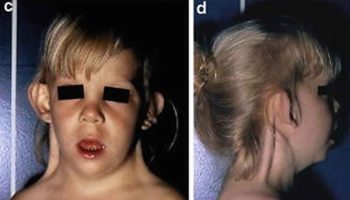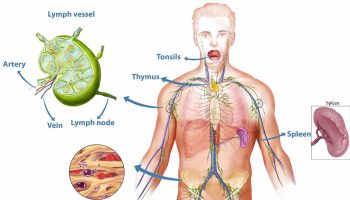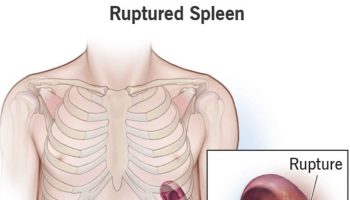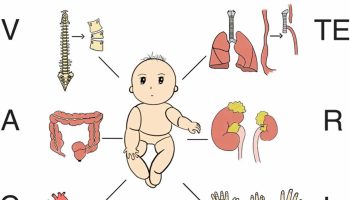Contents
What is bismuth subsalicylate
Bismuth subsalicylate is an antacid and anti-diarrhea medication that is used to treat diarrhea, heartburn, nausea, indigestion and upset stomach in adults and children 12 years of age and older. Bismuth subsalicylate also has local antimicrobial properties. Bismuth subsalicylate is in a class of medications called antidiarrheal agents. Bismuth subsalicylate works by decreasing the flow of fluids and electrolytes into the bowel, reduces inflammation within the intestine, and may kill the organisms that can cause diarrhea.
Bismuth subsalicylate is available without a prescription.
Bismuth subsalicylate is available in the following dosage forms:
- Suspension
- Chewable tablet
- Tablet
Bismuth subsalicylate is to be taken by mouth, with or without food. Follow the directions on the package carefully, and ask your doctor or pharmacist to explain any part you do not understand. Take bismuth subsalicylate exactly as directed. Do not take more or less of it or take it more often than recommended by the manufacturer or your doctor.
Swallow the tablets whole; do not chew them.
Shake the liquid well before each use to mix the medication evenly.
If your symptoms get worse or if your diarrhea lasts longer than 48 hours, stop taking this medication and call your doctor.
Bismuth subsalicylate is used to treat diarrhea, nausea, heartburn, indigestion, and upset stomach.
Bismuth subsalicylate should not be given to a child or teenager who has a fever, especially if the child also has flu symptoms or chicken pox. Salicylates can cause a serious and sometimes fatal condition called Reye’s syndrome in children.
You should not use bismuth subsalicylate if you have a stomach ulcer, a recent history of stomach or intestinal bleeding, or if you are allergic to salicylates such as aspirin, Doan’s Extra Strength, Salflex, Tricosal, and others.
Bismuth subsalicylate special precautions
Before taking bismuth subsalicylate:
- tell your doctor or pharmacist if you are allergic to salicylate pain relievers such as aspirin, choline magnesium trisalicylate, choline salicylate (Arthropan), diflunisal (Dolobid), magnesium salicylate (Doan’s, others), and salsalate (Argesic, Disalcid, Salgesic); or any other medication.
- tell your doctor and pharmacist what prescription and nonprescription medications, vitamins, nutritional supplements, and herbal products you are taking or plan to take. Be sure to talk to your doctor or pharmacist about taking bismuth subsalicylate if you take: anticoagulants (‘blood thinners’) such as warfarin (Coumadin); a daily aspirin; or medication for diabetes, arthritis or gout.
- if you are taking tetracycline antibiotics such as demeclocycline (Declomycin), doxycycline (Doryx, Vibramycin), minocycline (Dynacin, Minocin), and tetracycline (Sumycin), take them at least 1 hour before or 3 hours after taking bismuth subsalicylate.
- ask your doctor before taking this medication if you have ever had an ulcer, bleeding problem, stools that are bloody or blackened, or kidney disease. Also ask your doctor before taking bismuth subsalicylate if you have a fever or mucus in your stool. If you will be giving bismuth subsalicylate to a child or teenager, tell the child’s doctor if the child has any of the following symptoms before he or she receives the medication: vomiting, listlessness, drowsiness, confusion, aggression, seizures, yellowing of the skin or eyes, weakness, or flu-like symptoms. Also tell the child’s doctor if the child has not been drinking normally, has had excessive vomiting or diarrhea, or appears dehydrated.
- check the labels of all over-the-counter (OTC), nonprescription, and prescription medicines you now take. If any contain aspirin or other salicylates, be especially careful. Using other salicylate-containing products while taking bismuth subsalicylate may lead to overdose. If you have any questions about this, check with your health care professional.
- ask your doctor about taking this medication if you are pregnant or are breast-feeding.
For diabetic patients:
- False urine sugar test results may occur if you are regularly taking large amounts of bismuth subsalicylate or other salicylates.
- Smaller doses or occasional use of bismuth subsalicylate usually will not affect urine sugar tests. However, check with your health care professional (especially if your diabetes is not well-controlled) if:
- you are not sure how much salicylate you are taking every day.
- you notice any change in your urine sugar test results.
- you have any other questions about this possible problem.
Bismuth subsalicylate pregnancy
Safety of bismuth subsalicylate has not been established during pregnancy; use is not recommended.
US FDA pregnancy category: Not assigned
Animal studies are inadequate. There are no controlled data in human pregnancy. Bismuth subsalicylate lacks reports of adverse fetal outcomes; however salicylates may cause congenital defects, increased perinatal mortality from ductus arteriosus in utero, intrauterine growth restriction, and salicylate intoxication.
US FDA pregnancy category Not Assigned: The US FDA has amended the pregnancy labeling rule for prescription drug products to require labeling that includes a summary of risk, a discussion of the data supporting that summary, and relevant information to help health care providers make prescribing decisions and counsel women about the use of drugs during pregnancy. Pregnancy categories A, B, C, D and X are being phased out.
Bismuth subsalicylate breastfeeding
- Use is not recommended.
Excreted into human milk: Yes
Comments:
- Bismuth is not expected to appear in high concentrations in breast milk due to poor systemic absorption.
- Salicylates are excreted in breast milk.
Drug Interactions
Although certain medicines should not be used together at all, in other cases two different medicines may be used together even if an interaction might occur. In these cases, your doctor may want to change the dose, or other precautions may be necessary. When you are taking this medicine, it is especially important that your healthcare professional know if you are taking any of the medicines listed below. The following interactions have been selected on the basis of their potential significance and are not necessarily all-inclusive.
Using bismuth subsalicylate with any of the following medicines is usually not recommended, but may be required in some cases. If both medicines are prescribed together, your doctor may change the dose or how often you use one or both of the medicines.
- Aceclofenac
- Acemetacin
- Amtolmetin Guacil
- Bromfenac
- Bufexamac
- Celecoxib
- Clonixin
- Dexibuprofen
- Dexketoprofen
- Diclofenac
- Digoxin
- Dipyrone
- Droxicam
- Etodolac
- Etofenamate
- Etoricoxib
- Felbinac
- Fenoprofen
- Fepradinol
- Feprazone
- Floctafenine
- Flufenamic Acid
- Flurbiprofen
- Ibuprofen
- Indomethacin
- Ketoprofen
- Lornoxicam
- Loxoprofen
- Lumiracoxib
- Meclofenamate
- Mefenamic Acid
- Meloxicam
- Morniflumate
- Nabumetone
- Naproxen
- Nepafenac
- Niflumic Acid
- Nimesulide
- Nimesulide Beta Cyclodextrin
- Oxaprozin
- Oxyphenbutazone
- Parecoxib
- Phenylbutazone
- Piketoprofen
- Piroxicam
- Proglumetacin
- Propyphenazone
- Proquazone
- Rofecoxib
- Sulindac
- Tenoxicam
- Tiaprofenic Acid
- Tolfenamic Acid
- Tolmetin
- Valdecoxib
Using bismuth subsalicylate with any of the following medicines may cause an increased risk of certain side effects, but using both drugs may be the best treatment for you. If both medicines are prescribed together, your doctor may change the dose or how often you use one or both of the medicines.
- Doxycycline
- Omadacycline
- Probenecid
- Sulfinpyrazone
- Tamarind
Other Interactions
Certain medicines should not be used at or around the time of eating food or eating certain types of food since interactions may occur. Using alcohol or tobacco with certain medicines may also cause interactions to occur. Discuss with your healthcare professional the use of your medicine with food, alcohol, or tobacco.
Other Medical Problems
The presence of other medical problems may affect the use of this medicine. Make sure you tell your doctor if you have any other medical problems, especially:
- Dysentery—This condition may get worse; a different kind of treatment may be needed
- Gout—The salicylate in this medicine may worsen the gout and make the medicines taken for gout less effective
- Hemophilia or other bleeding problems—The salicylate in this medicine may increase the chance of bleeding
- Kidney disease—There is a greater chance of side effects because the body may be unable to get rid of the bismuth subsalicylate
- Stomach ulcer—Use of this medicine may make the ulcer worse
How does bismuth subsalicylate work?
Bismuth subsalicylate exerts a local effect on the gastric mucosa, coating it and protecting it from the corrosive effects of acid and pepsin.
Bismuth subsalicylate dosage
Adult dose for Dyspepsia
- 524 mg orally every 30 to 60 minutes as needed not to exceed 8 doses in any 24 hour period.
- Alternatively, 1048 mg to 1050 mg may be given orally every hour not to exceed 4 doses in any 24 hour period.
Comments:
- Use until diarrhea stops but not longer than 2 days.
- Bismuth subsalicylate may be useful in the prevention of traveler’s diarrhea during periods of risk. The duration of use for traveler’s diarrhea should not exceed approximately 3 weeks.
- Shake liquid formulations well before using.
Adult dose for Traveler’s Diarrhea
- 524 mg orally every 30 to 60 minutes as needed not to exceed 8 doses in any 24 hour period.
- Alternatively, 1048 mg to 1050 mg may be given orally every hour not to exceed 4 doses in any 24 hour period.
Comments:
- Use until diarrhea stops but not longer than 2 days.
- Bismuth subsalicylate may be useful in the prevention of traveler’s diarrhea during periods of risk. The duration of use for traveler’s diarrhea should not exceed approximately 3 weeks.
- Shake liquid formulations well before using.
Adult dose for Diarrhea
- 524 mg orally every 30 to 60 minutes as needed not to exceed 8 doses in any 24 hour period.
- Alternatively, 1048 mg to 1050 mg may be given orally every hour not to exceed 4 doses in any 24 hour period.
Comments:
- Use until diarrhea stops but not longer than 2 days.
- Bismuth subsalicylate may be useful in the prevention of traveler’s diarrhea during periods of risk. The duration of use for traveler’s diarrhea should not exceed approximately 3 weeks.
- Shake liquid formulations well before using.
Adult dose for Helicobacter pylori Infection
- 524 mg orally 4 times a day.
Pediatric dose for Diarrhea
Non-specific diarrhea:
- <3 years: use with caution
- 3 to 6 years: 87 mg every 30 minutes to 1 hour as needed.
- 6 to 9 years: 175 mg every 30 minutes to 1 hour as needed.
- 9 to 12 years: 262 mg every 30 minutes to 1 hour as needed.
Pediatric dose for Chronic Diarrhea
Chronic Infantile Diarrhea:
- 2 to 24 months: 44 mg every 4 hours
- 24 to 48 months: 87 mg every 4 hours
- 48 to 70 months: 175 mg every 4 hours
Pediatric dose for Helicobacter pylori Infection
Dosage in children with Helicobacter Pylori Infection is not well established, the following doses have been used in conjunction with ampicillin and metronidazole.
- <= 10 years: 262 mg four times a day for six weeks
- > 10 years: 524 mg four times a day for six weeks
Renal Dose Adjustments
- Data not available
Liver Dose Adjustments
- Data not available
Precautions
Consult WARNINGS section for dosing related precautions.
Dialysis
- Data not available
What should I do if I forget a dose?
This medication is usually taken as needed. If your doctor has told you to take bismuth subsalicylate regularly, take the missed dose as soon as you remember it. However, if it is almost time for the next dose, skip the missed dose and continue your regular dosing schedule. Do not take a double dose to make up for a missed one.
Bismuth subsalicylate side effects
Bismuth subsalicylate may cause side effects. Some side effects can be serious. If you experience this symptom, stop taking this medication and call your doctor immediately:
- ringing or buzzing in your ear(s)
In some patients bismuth subsalicylate may cause dark tongue and/or grayish black stools. This is only temporary and will go away when you Stop taking bismuth subsalicylate.
Check with your doctor immediately if any of the following side effects occur while taking bismuth subsalicylate:
- anxiety
- any loss of hearing
- confusion
- constipation (severe)
- diarrhea (severe or continuing)
- difficulty in speaking or slurred speech
- dizziness or lightheadedness
- drowsiness (severe)
- fast or deep breathing
- headache (severe or continuing)
- increased sweating
- increased thirst
- mental depression
- muscle spasms (especially of face, neck, and back)
- muscle weakness
- nausea or vomiting (severe or continuing)
- ringing or buzzing in ears (continuing)
- stomach pain (severe or continuing)
- trembling
- uncontrollable flapping movements of the hands (especially in elderly patients) or other uncontrolled body movements
- vision problems
Nervous system
- Rare (less than 0.1%): Myoclonic encephalopathy
- Frequency not reported: Weakness, fatigue, depression, anxiety, irritability, insomnia, unsteady gait, motor incoordination, loss of memory, jerky movements, mental confusion, disorientation, difficulty in walking and speaking, tremor, myoclonic jerks, incontinence
Nervous system toxicity is a common feature of bismuth toxicity. Bismuth toxicity is characterized by the insidious onset of weakness and fatigue, depression, anxiety, irritability, insomnia, unsteady gait, motor incoordination, loss of memory, and jerky movements. Acute toxicity may result in the development of mental confusion, disorientation, difficulty in walking and speaking, tremor, myoclonic jerks, and incontinence.
Myoclonic encephalopathy has occurred in patients who have ingested bismuth for several months to years, but the incidence is very rare. Recovery of patients from bismuth encephalopathy may take several months following discontinuation of use. Bismuth encephalopathy has generally been reported in patients ingesting salts other than subsalicylate.
Other
Salicylism has been reported in patients who chronically ingest bismuth subsalicylate. Common complaints include vertigo, diminished hearing, lethargy, CNS dysfunction, confusion, tinnitus, vomiting, and abdominal pain. Patients may present with respiratory alkalosis and metabolic acidosis, azotemia, and hypoprothrombinemia and platelet dysfunction. The elderly may be particularly vulnerable to the development of salicylism.
- Frequency not reported: Salicylism
Gastrointestinal
- Very common (10% or more): Black stool
- Common (1% to 10%): Black tongue
- Frequency not reported: Nausea, vomiting
Bismuth subsalicylate may cause other side effects. Call your doctor if you have any unusual problems while taking bismuth subsalicylate.





